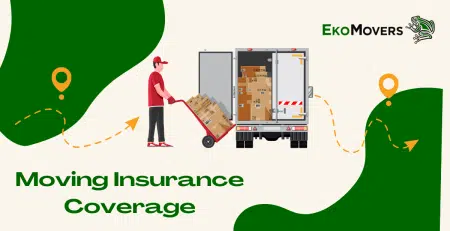Moving After Retirement
Moving After Retirement: Exploring Pros & Cons of a New Chapter
Retirement often marks the beginning of a new chapter in life, filled with possibilities and the freedom to explore different lifestyles. One significant decision retirees often contemplate is moving to a new location. This decision comes with a myriad of factors to consider. This blog post will delve into the pros and cons of moving after retirement, helping you weigh your options and make an informed decision tailored to your aspirations.
Pros of Moving After Retirement:
Financial Flexibility:
Cost of Living: Moving to an area with a lower cost of living can stretch your retirement savings further, allowing for a comfortable lifestyle.
Tax Benefits: Some states offer tax incentives for retirees, reducing your tax burden and increasing your disposable income.
Improved Quality of Life:
Healthcare Facilities: Moving to an area with excellent healthcare facilities ensures access to quality medical services as you age.
Recreational Activities: Choose a location with activities you love, whether golfing, hiking, or cultural events, ensuring an active and fulfilling retirement.
Simplified Lifestyle:
Downsizing: Moving into a smaller, more manageable home can simplify your life, reducing maintenance and allowing you to focus on activities you enjoy.
Community Living: Retirement communities offer social interactions, amenities, and support tailored to retirees’ needs, fostering a sense of belonging.
Adventure and Exploration:
New Experiences: Moving to a new city or country can open doors to new cultures, cuisines, and friendships, enriching your retirement years with exciting experiences.
Travel Opportunities: Living strategically can make travel more accessible, allowing you to explore nearby destinations conveniently.
Cons of Moving After Retirement:
Emotional Attachments:
Leaving Friends and Family: Moving away might mean being farther from loved ones, impacting regular interactions and support systems.
Nostalgia: Leaving a place filled with memories can be emotionally challenging, especially if you’ve spent a significant portion of your life there.
Adjustment Challenges:
Cultural Differences: Moving to a new region might entail adapting to different customs and lifestyles, which can be exciting and daunting.
Establishing New Networks: Building new friendships and social circles takes time and effort, especially in a new environment.
Logistical Considerations:
Moving Logistics: Moving, selling your existing home, and settling into a new place can be physically and mentally taxing, requiring meticulous planning.
Healthcare Transition: Adjusting to a new healthcare system and finding suitable healthcare providers can be complex, especially if you have specific medical needs.
Additional Points to Consider When Moving After Retirement:
Climate Preferences:
Weather Conditions: Consider the climate of the new location. Do you prefer a warmer climate, a cooler one, or a place with distinct seasons? Your comfort in the new environment is crucial for your overall well-being.
Proximity to Healthcare:
Access to Medical Facilities: Evaluate the proximity and quality of healthcare facilities. Being near hospitals, clinics, and specialists becomes increasingly essential in retirement.
Transportation and Accessibility:
Public Transportation: Explore the availability and efficiency of public transportation, especially if you plan to rely on it for daily activities.
Accessibility: Consider the walkability of the neighborhood and the availability of amenities within a reasonable distance.
Estate Planning and Legal Considerations:
Estate Laws: Understand the local laws related to wills, trusts, and estate planning. Legal requirements may vary by state or country.
Property Taxes: Research property tax rates in the prospective area. Higher property taxes can affect your overall financial planning.
Local Taxes and Regulations:
Income Taxes: Understand the state or local income tax regulations. Some states have no income tax, which can impact your retirement income significantly.
Homeowner Regulations: Familiarize yourself with homeowner association rules, if applicable, to ensure they align with your lifestyle preferences.
Considering these additional factors alongside the pros and cons mentioned earlier will provide a comprehensive overview, enabling you to make a well-informed decision about moving after retirement. Remember, thorough research and thoughtful planning are key to successfully transitioning to your ideal retirement destination.
Conclusion
Moving after retirement is a significant decision that requires careful consideration of various factors. Assess your priorities, financial situation, and emotional attachments before choosing. While exploring new horizons can bring excitement and fulfillment, weighing the benefits against the challenges is crucial. Ultimately, your retirement years should reflect your aspirations and desires. Whether you choose the familiarity of your current home or embark on an adventure in a new place, the key is to create a retirement lifestyle that brings you joy, contentment, and a sense of fulfillment. Remember, the best decision aligns with your unique vision for this new and exciting phase of life.
Are you looking for a reliable moving company? Contact EkoMovers now!










